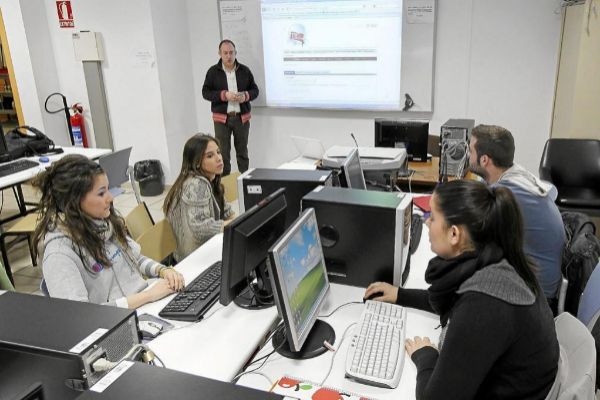There is no doubt that we have, at the Spanish University, a serious problem of lack of work and training diversity. Statistics show that our University is one of the most closed in Europe. According to the latest data and figures report of the Spanish university system, 73.4% of public university professors work in the same center where they received a doctorate. 87% work in centers located in the same autonomous community where they received a doctorate . Almost 98% work in the country, Spain, where he received his doctorate. Such figures cause astonishment abroad, in any of the leading countries in research, among the researchers we intend to match.
Nor does there seem to be awareness among us of the social rejection that these practices raise in leading R&D systems. To give an example, which I know well: Harvard has been under enormous pressure these years for occasionally hiring its own doctoral students, even if, in principle, for only six years. In general, in North America and in much of Europe, the unspoken rule of not hiring doctoral students themselves is followed, at least until after an extensive training and employment period in other countries or centers. The worrying thing, in my opinion, is not so much that, as is evident, our system has not been able to promote mobility (beyond the brief academic visits of rigor, without real contractual link -and sometimes only for the gallery-, of those who already work and have been trained at home). Even more worrying is the lack of understanding that I perceive as to why a diverse work experience, far from being an imposition of "relocation," is, in itself, very positive . Undoubtedly, this lack of understanding is partly caused by the same lack of experience, which prevents us from conceiving another reality, and which, therefore, is a difficult circle to break ( "the greater inbreeding, more inbreeding" ). It is therefore necessary to review here some of the reasons why work mobility experience should be considered an indispensable requirement.
In the first place, mobility is an indicator of a decisive nature and given to innovation, which, being an important virtue in any human being, is essential among teaching and research staff. This is recognized by all teacher and research evaluation programs, which place innovation and intellectual leadership as main values. Secondly, mobility allows to extend the experience , contributing new practices, revealing where the present ones fail, and how they can be improved. The official system that we have forces us, at times, to confuse experience with seniority; the truth is that the second, far from driving the first, often works against him. A person with a lot of seniority in a position, by definition, lacks a great diversity of experience. For that reason, "antiquity", in dry terms, is considered, in leading R&D systems, rather an indication of lack of initiative and anguish.
On the contrary, diversity in experience is an essential part of the contribution that a professor or researcher can make to your center. We all work better, virtually involuntarily, and with little effort, when we have moved. Well, in that case, our mere presence and interaction is a constant source of enrichment for others. Ignoring this value leads to inefficient practices that far from rewarding talent, experience, and diversity, aim to exclusively assess the raw effort, measured in quantitative terms as generic as the number of degrees, low-level publications, or hours in the classroom, even when they are irrelevant, or not very edifying.
Finally, mobility involves the transmission of information , especially about the various research and teaching practices. That type of tacit information can only be poured in person, by example, and is essential in any field. It allows us to understand how other teams work, their priorities, the methods and guarantees they have, their experimental practices, etc. We constantly learn from each other, only to the extent that there is real mobility. Here is the sap that nourishes and gives meaning to the University, from its medieval origin , transmitting spirit of adventure, scientific curiosity, and knowledge of the current state of knowledge.
The term "inbreeding" suggests successful scientific analogies. In population genetics, inbreeding allows deleterious recessive genes to gain visibility, and reproduce, resulting in a type of population biological death. Similarly, a closed and isolated "endogenous" physical system stagnates in a sort of thermal or entropic death. Very exceptionally, anomalies occur, the result of random mutations or fluctuations, which disturb the thermal or population balance briefly, but are highly unlikely. The optimal evolution of our research and higher education institutions, goes through reversing these dynamics , which demands profound changes in the prevailing work culture, if we really want to fulfill the ultimate goal of the University.
Mauricio Suárez is Professor of Logic and Philosophy of Science at the Complutense University of Madrid and Research Associate at the London School of Economics. His latest book in Spanish is Philosophy of Science: History and Practice (Tecnos).
According to the criteria of The Trust Project
Know more- Europe
- Spain
- Health
- Education
- Opinion
Grandstand Could the university get worse?
Tribune Conservative and with these heats
Tribune University: myth and reality

